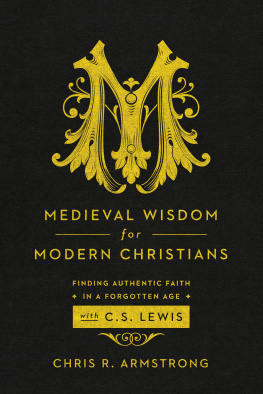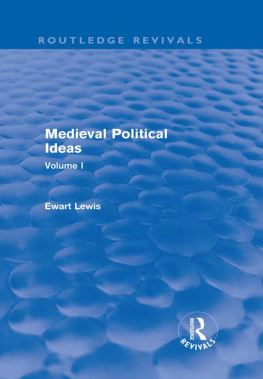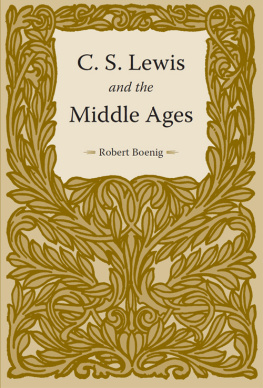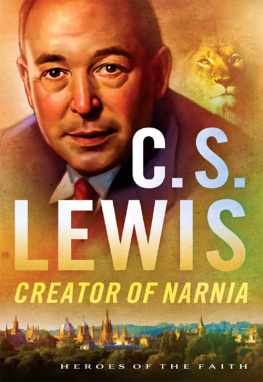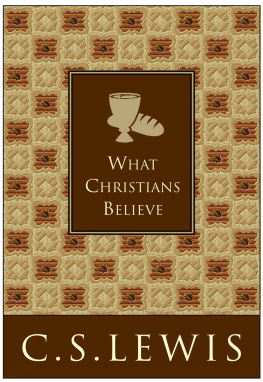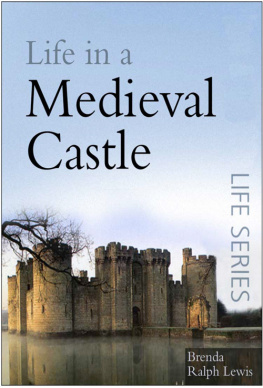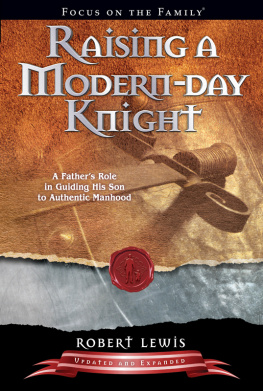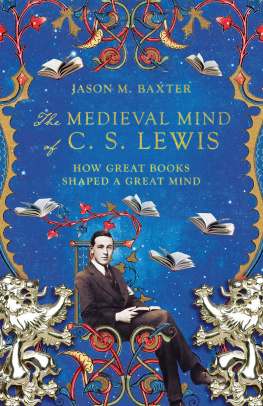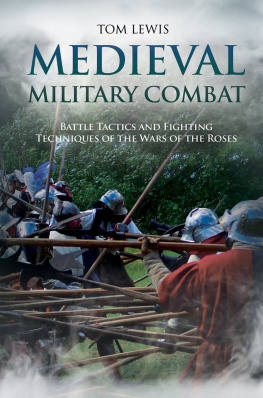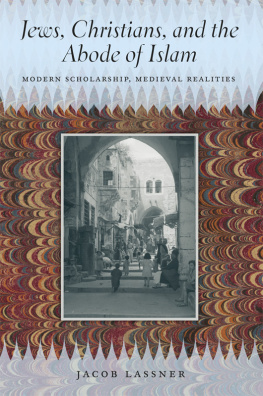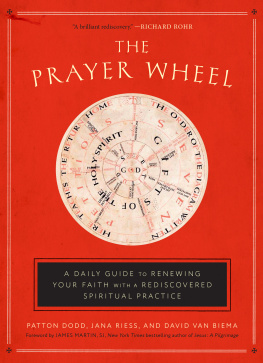Copyright Page
2016 by Chris R. Armstrong
Published by Brazos Press
a division of Baker Publishing Group
P.O. Box 6287, Grand Rapids, MI 49516-6287
www.brazospress.com
Ebook edition created 2016
All rights reserved. No part of this publication may be reproduced, stored in a retrieval system, or transmitted in any form or by any meansfor example, electronic, photocopy, recordingwithout the prior written permission of the publisher. The only exception is brief quotations in printed reviews.
Library of Congress Cataloging-in-Publication Data is on file at the Library of Congress, Washington, DC.
ISBN 978-1-4934-0197-0
Unless otherwise indicated, Scripture quotations are from the Holy Bible, New International Version. NIV. Copyright 1973, 1978, 1984, 2011 by Biblica, Inc. Used by permission of Zondervan. All rights reserved worldwide. www.zondervan.com
Scripture quotations labeled NASB are from the New American Standard Bible, copyright 1960, 1962, 1963, 1968, 1971, 1972, 1973, 1975, 1977, 1995 by The Lockman Foundation. Used by permission. (www.Lockman.org)
Scripture quotations labeled NKJV are from the New King James Version. Copyright 1982 by Thomas Nelson, Inc. Used by permission. All rights reserved.
Endorsements
With lilting prose and sparkling insight, Armstrong draws us into the spiritual riches of medieval Christianity. He shows how the era managed to combine faith and reason, spirit and nature, health and healing, joy and discipline, and Word and sacrament in a way that all Christians, and especially evangelicals, acutely need today. Armstrong uses the insights of C. S. Lewis and other modern interpreters to shine a light on that long-past yet still remarkably relevant era. This book will serve equally well in college, seminary, and church education classrooms.
Grant Wacker , Duke Divinity School
Evangelicals have come a long way in the past twenty years in recovering the richness of the Christian past. There is still a long way to go, and this book takes a big stride in the right direction. In Medieval Wisdom for Modern Christians , Chris Armstrong offers a convincing rationale for why evangelical believers are quick to reject the Middle Ages but slow to appreciate the eras theological and spiritual riches. Using the wisdom of C. S. Lewis as a point of entry, Armstrong unpacks the material and sacramental world of the medieval church, demonstrating why such dated material is not only relevant but also much needed in the life of the evangelical church today. As Lewis knew well, the way to the future lies in the past, and Armstrong provides a fascinating glimpse into what will be gained from exploring medieval wisdom. This is a must-read for anyone who cares about the evangelical churchs future.
Greg Peters , Biola University; author of The Story of Monasticism
Armstrongs approach to introducing twenty-first-century Christians to the rich resources of medieval and monastic wisdom is ingenious. He uses C. S. Lewis to invite us into a conversation with other contemporaries who have found that this oft-neglected period of Christian history provides the kind of embodied and holistic spiritual life that is needed as a remedy for todays gnostic, individualistic, and shallow spirituality. The reader who knows little about the medieval period will end up with an appetite whetted for more and with enough wisdom to begin practicing a deeper faith.
Dennis Okholm , Azusa Pacific University; author of Dangerous Passions, Deadly Sins: Learning from the Psychology of Ancient Monks
With a searching evaluation of his own evangelical leanings and inspired by the discerning medievalism of his spiritual mentor C. S. Lewis, Chris Armstrong takes us on a delightful tour through the insights of medieval Christians that have most profited him. With Armstrongs sparkling prose, the journey never turns arcane or becomes tiresome, and it leaves us with many treasures to ponder.
Robert B. Kruschwitz , Institute for Faith and Learning, Baylor University
Accessible and engaging, Medieval Wisdom for Modern Christians is a wonderful introduction to our neglected Christian tradition for all those who feel something is missing in the modern church. It is also a real treat for fans of C. S. Lewis.
Devin Brown , Asbury University; author of A Life Observed: A Spiritual Biography of C. S. Lewis
Chris Armstrong knows what ails modern American Protestantism, and the right medicines, he says, are available on the pharmacy shelves of the Middle Ages. Here is an excellent introduction to medieval spirituality, philosophy, theology, and Christian practice, which offer strong medicines for serious conditions.
David Neff , former editor in chief, Christianity Today and Christian History
Dedication
To my mother, Barbara Armstrong, and to my father, Stan Armstrong, whose long-ago suppertime readings of stories from C. S. Lewis and other medieval-smitten moderns started all of this.
To the Duke University Inklings Group of the late 90s and early aughtsAndy and Quita Sauerwein, Edwin and Jennifer Woodruff Tait, Neil and LaVonne Carlson, Jennifer Trafton Peterson, Brian Averette, and other occasional attendeeswho read to each other some of the same stories I had first heard read by my father, as well as some we had written ourselves.
And to my wife, Sharon, and children, Kate, Caleb, Grace, Ross, and John Allen: may they each find wisdom in the writings of Christ-following sages from other eras.
Contents
Cover
Title Page
Copyright Page
Endorsements
Dedication
1. My Angle of Approach
2. C. S. LewisA Modern Medieval Man
3. Getting Rooted: Tradition as Source of Truth
4. Getting Thoughtful: The Medieval Passion for Theological Knowledge
5. Getting Moral: The Ethical Fabric of Medieval Faith
6. Getting Merciful: Why Medievals Invented the Hospital
7. Getting Earthy: Gods Second BookThe Natural World
8. Getting Passionate: Medieval Faith as a Religion of the Heart
9. Getting Human: How the Incarnation Lifts Up Our Humanness
10. Getting It Together: Responding to Our Medieval Heritage and Reflecting on the Ascetic and Monastic Paths
Notes
Index
Back Cover
Notes
Chapter 1 My Angle of Approach
. I remember also T. H. White and Lloyd Alexanderalthough those have not impacted my adult faith as have the first three mentioned here.
. Patron Saints for Postmoderns: 10 from the Past Who Speak to Our Future (Downers Grove, IL: InterVarsity, 2009).
. See Lewiss comments in The Screwtape Letters concerning historicism, which are noted in chap. 3.
. Ian Boyd, in Chestertons Medievalism, Studies in Medievalism: Inklings and Others and German Medievalism 3 (Winter/Spring 1991): 24355, has this to say:
[Chesterton] insists on the paradox that genuine medievalism is closely connected to contemporary... issues, declaring roundly that medieval history is useless unless it is also modern history, and mocking both the romantic antiquarian who haunts Melrose by moonlight and the Don Quixote figure who fails to understand his own age. But always Chesterton insists that the sign of genuine medievalism is an ability to see the contemporary world with fresh vision. In Chestertons view, Cobbett, Carlyle, Hood, Ruskin, and Kenelm Digby are true medievalists, because when they look to a medieval past, whether real or imaginary, they look to it only in order to understand better their own age. The false medievalist is recognized by his blindness to the problems of his own day. (24647)
. See the recent admission of Willow Creek leadership that they have failed in the area of discipleship, Willow Creek Repents?, Christianity Today , October 18, 2007. www.christianitytoday.com/le/2007/october-online-only/willow-creek-repents.html. For an analysis of the first two phases I mention, rational apologetics and pragmatic programs, see Robert E. Webber, The Younger Evangelicals: Facing the Challenges of the New World (Grand Rapids: Baker Books, 2002).

